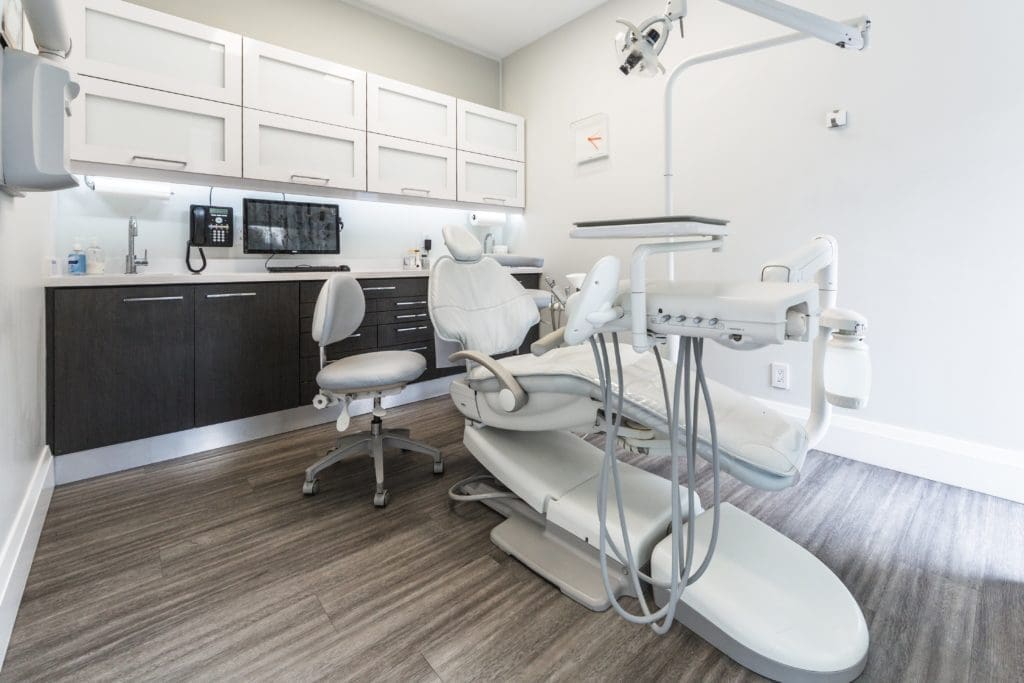Last updated on October 4th, 2023 at 03:57 pm
This blog is part 2 of 3 in a series on opening additional locations. Click here for Part I, and here for Part III in this series.
 Like many things, having more than one location can work out very well, assuming you’ve set yourself up to succeed.
Like many things, having more than one location can work out very well, assuming you’ve set yourself up to succeed.
In this series of blogs (3 in all), we’re covering some basic “do’s & don’ts” compiled from a combination of observation and fundamental laws of management. As I mentioned in the last issue, these blogs are based on personal observations on the subject and should be treated as such – you must always do what you feel is right as ultimately you are the one responsible for your actions. My purpose behind writing these things is to offer up a number of issues to consider and/or potentially address when it comes time to expand – thereby making any such expansion smoother, less stressful and as successful as possible.
And, as I mentioned in the last post, this information is targeted primarily at GPs who are looking at additional locations – not specialists. While some of this information would be helpful for specialists, there are a few different rules that apply to them with multiple offices.
If you are a specialist and you find that you have questions that haven’t been answered in these blogs, e-mail me at jeffb@mgeonline.com or call me here at MGE at (727) 530-4277. The same goes for anyone else who reads these – feel free to contact me with questions
Eight key questions to ask before expanding:
Last week, we hit on eight key points I would discuss with a client who was looking at additional locations. They were:
- Why are they opening another office?
- Is their “house in order” at their current location?
- Where are they looking at opening the second (or third, fourth, etc.) office?
- Are they going to work in the new location? If so, how many days and how will this affect their primary location?
- Are they bringing in a partner in this venture or are they going it alone?
- Are they starting a scratch practice or buying an existing office?
- How are they going to staff the new office?
- How will they administer the finances for each office?
I broke down 1-3 above in last week’s webletter, which can be found here.
This week, we’ll delve into 4-5. And with that, I’ll start with point #4:
4. Are you going to work in the new location? If so, how many days and how will this affect your primary location?
This point is important from the standpoint of your financial future and the potential profitability of your new (and current) office.
You have an office that is successful and, as covered last week, this should be a prerequisite to opening location number “2.” You find an incredible location in a new, expanding area about 45 minutes from your office and close to where you live. It is, for all intents and purposes, an “ideal” spot to open an office.
Branching out to this new location, while exciting, should also demand a hard look at your current scene.
Related reading: How to Know if You Should Expand Your Dental Practice
A few things to look at off the bat would be:
Do you have an associate?
I write this as I’ve seen plenty of cases where a solo GP opens a second location and decides to work both of them. This lowered production/collections at location #1 normally results in:
- Doctor working six days a week.
- Doctor under financial stress as a result of trying to meet obligations at both offices.
- Doctor wishing he or she had not opened office #2
- Doctor trying to sell one of the offices.
While life consists of a number of experiences – this is one that can be easily avoided! If you want to open location #2 because you are doing poorly at location #1, see last week’s newsletter. In that same line of reasoning, don’t demolish the productivity at location #1 in order to open location #2.

At minimum you would need a functioning associate, who you were completely certain about – clinically and otherwise – before jumping into #2. They would have to be an excellent clinician – this is a no-brainer. They would also have to be proficient at case presentation and have a high rate of case acceptance. If you are the only one good at getting patients to agree to their treatment plans, you’ll see an appreciable drop when you start cutting out days at location #1. And keep in mind, location #1 has been paying your bills and supporting your family.
The type of location you open will have a lot to do with how much you will have to work in it. A scratch practice might only demand 1-2 days a week of your time, while a going concern could be a full time job.
Depending on the type of associate you have (i.e. maybe they are future partner material, which we’ll discuss in a bit), you might split time at the new place with the associate.
In sum, you’ll have to work things out so location #1 stays at the same level of productivity or better when opening #2.
How will the new practice schedule impact your finances?
Have you calculated how taking days out of location #1 (and paying an associate instead) will impact your personal and practice bottom line?
Associates don’t come cheap – and well they shouldn’t. Let’s say you’re paying 30% of collections to your associate and they collect about $40,000 per month, making their average monthly compensation about $12,000. You decide to spend two days a week in location #2 with the associate picking up the slack. By moving the patients you would have seen over to the associate for those two days, let’s say that you’ll be adding about $20-$40,000 to his or her schedule. Net result would be an additional $6-12,000 in compensation. This $6-$12,000 would come out of your profit. In this scenario, the owner/doctor would have to consider the financial impact this would create for them. If they are making that (or more) from location #2 and there’s a lot of upside then this might work fine.
Related reading: Should You Be Open on Evenings or Saturdays?
Let’s take another example: Primary owner/doctor spends most of their time placing implants three or four mornings a week with two associates picking up the rest of the production. He or she decides to open a new office close to home. This set-up provides a lot more flexibility as they already have a fairly established production machine and their time chair-side is minimal. Tweaking the schedule a bit at office #1 allows them time to put into office #2 without missing a beat. And, as office #2 expands, associates from #1 might want to put in some additional time at #2 along with new associates coming on board. Net result: two very productive offices where primary owner doctor can focus on higher end work.
While there are a million different scenarios you can paint here, the point is simple – however you configure your expansion, these plans have to include running the numbers and figuring out how to make it work.
5. Are you bringing in a partner in this venture or are you going it alone?
With regards to partnerships, the pros and cons are pretty self-explanatory. Having said that, let me throw out something to “think about.”
A large part of what makes your office work is YOU. And there is a BIG reason that goes beyond the obvious reasons why: i.e. being the main producer, etc. This reason is simple: you have a vested interest and responsibility in seeing your office survive and succeed. Now, this is not to say that your staff don’t want this. You may have the greatest and most dedicated staff in the world. But, when push comes to shove, if your office were to go out of business or go bankrupt, the most your staff would lose would be their jobs. Now, I’m not saying this to make light of it and this would of course make it tough on them both economically and emotionally. But if this were to happen to you as a business owner – you would be in a far worse position. You have much more to lose.

This factor – both the responsibility and care you must have as a business owner – makes your presence on the scene very important.
Without you there in the office, things can only get worse if you have employees (or associates) who really aren’t dedicated or don’t care what happens to the business.
I’m not a dentist, but I’ll tell you this. If I were going into multiple locations I would probably go into some type of partnership for the old or new location – which one would depend on where I’d be working the most. It wouldn’t have to be 50/50. If I wanted to maintain controlling interest, it might only be as low as 10-25%. Either way, I’d know that the dentist in my other location had a stake in how that location performed, both clinically and fiscally and had their “neck out” just like me.
This would have additional benefits: my partner – unlike an associate – couldn’t just quit and open up down the street. They would have a responsibility to the practice.
A big downside for many associate relationships is that the associate could, in theory, just come in tomorrow and quit, depending on their contract (or lack thereof). Normally, partnerships are not ended quite that easily. This factor can make a partnership tough when it’s not working out due to personality conflicts or any number of other reasons. So, while you should afford ample time and effort to due diligence when selecting an associate, you would have to expend even more effort when selecting a potential partner.
In closing.
And with that, I’ll wrap up this week’s installment. Next week, we’ll look at the last three issues: Are you starting from scratch or with an existing office along with how you would staff and manage the finances of each location.
This article provided by MGE: Management Experts, Inc. consists of suggestions and ideas that could be used to help improve the solvency and viability of a dental practice. There is no guarantee that the information provided is appropriate to your practice. Each practice, their owners, officers and staff are individually responsible for ensuring that any system implemented in the practice complies with the applicable federal, state and local accounting, tax and employment laws, rules and regulations governing the place in which your practice is located. These suggestions do NOT constitute legal or accounting advice. You should seek advice from your own accounting and legal advisors as to what is appropriate to implement in your practice, prior to implementation. MGE: Management Experts, Inc., its officers, directors, shareholders, employees, agents and the writer of this article, are not responsible for any claims, real or otherwise, associated with this material and information or any part thereof.


